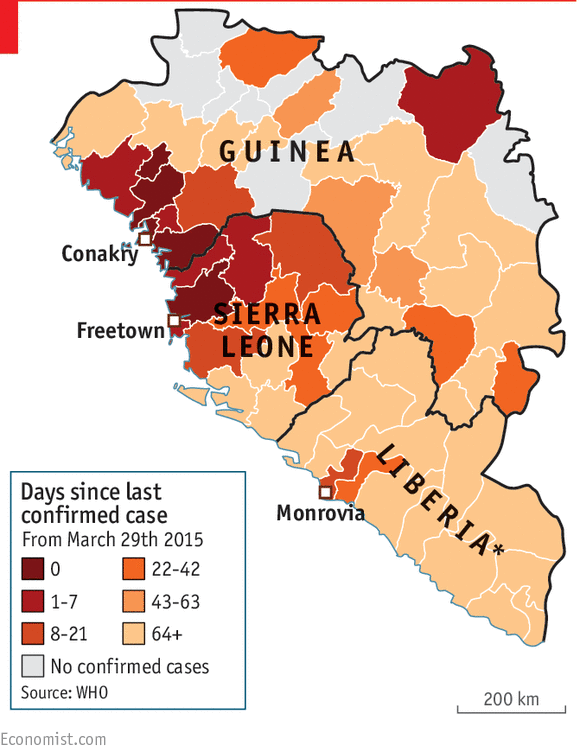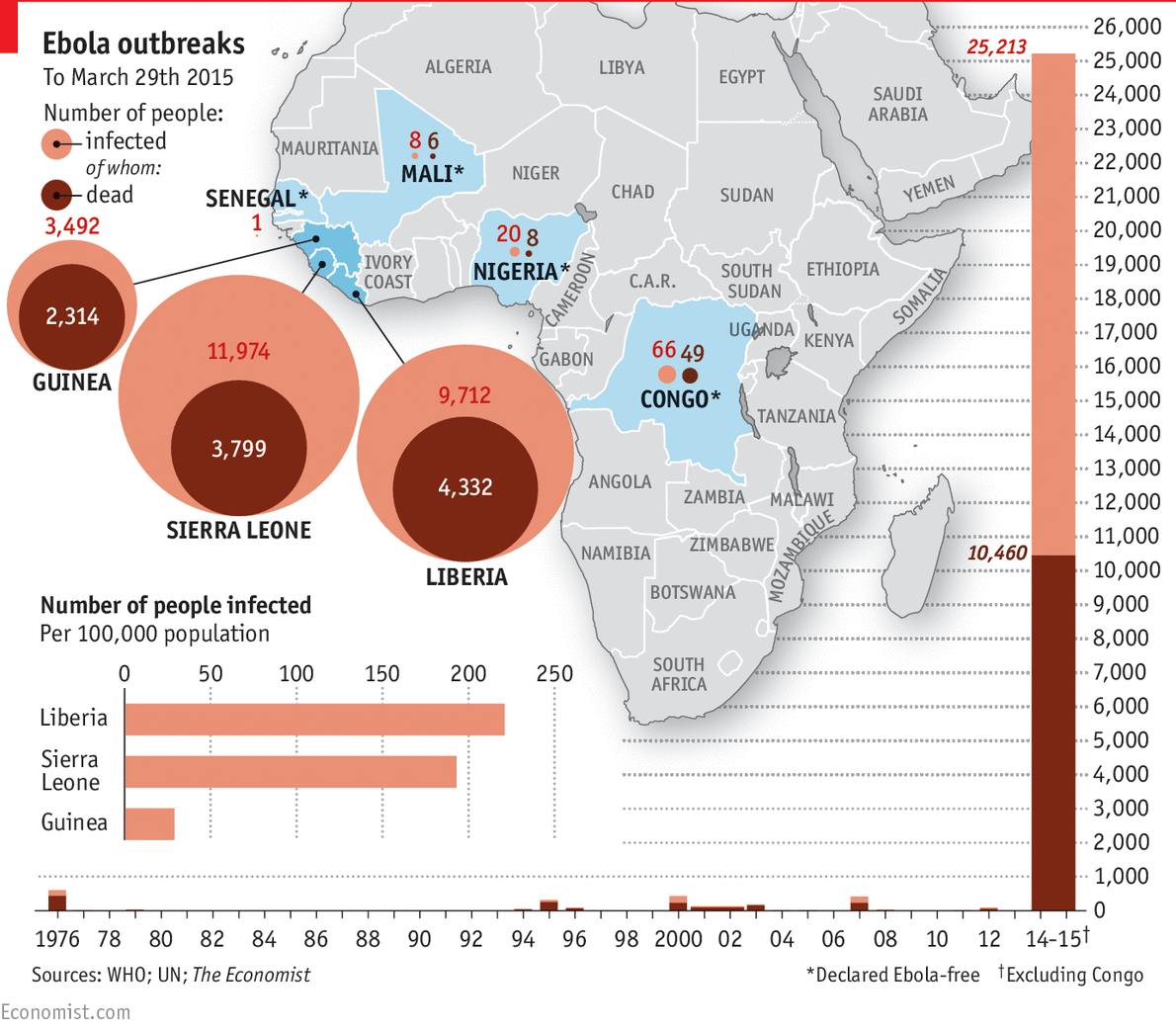Ebola back in Sierra Leone, Just Won't Go Away in Guinea
The first cases of the Ebola Zaire virus fueling the current
outbreak occurred in March 2014: over a year ago. While an outpouring of
international aid helped contain the outbreak, there’s still a lot of work left
to do. Over 10,000 people have died from this nasty hemorrhagic fever, and
still the death toll is rising. On April 1st, Sierra Leonean
officials found 10 new cases during a 3-day countrywide shutdown. While this is
much fewer cases than before, ideally no new people would become infected.
Guinea is faring worse: 82 new cases occurred in the
week of March 22nd alone. Guinea is larger than Sierra Leone, and
has a more developed public health system; however, this has actually led to
less behavior change than would be ideal for the containment of the outbreak.
Liberia’s hasn’t had any new cases recently; the country
lifted its Ebola curfew 2 weeks ago, and it is on its way to “Ebola-free”
certification. The economic damage has been profound, but the country is
recovering. One article writes about its rebounding nightlife. (http://www.thedailybeast.com/articles/2015/04/05/liberia-s-nightlife-is-back-post-ebola.html)
Ebola at a Glance: Some helpful graphics
 |
| A map depicting days since the last recorded Ebola case http://www.economist.com/blogs/graphicdetail/2015/04/ebola-graphics |
 |
| Ebola in West Africa: Death Toll by Country, from http://www.economist.com/blogs/graphicdetail/2015/04/ebola-graphics |
A Promising Vaccine
In related news, the experimental vaccine seems to be doing
well in clinical trials. The New England Journal of Medicine (http://www.nejm.org/doi/full/10.1056/NEJMoa1414216?query=TOC)
reports that in a recent trial, 100% of the subjects developed a strong immune
response and didn’t show any serious side effects. Nonhuman primates who were
subsequently exposed to the virus didn’t develop symptoms.
The vaccine described is a recombinant vesicular stomatitis
virus, a rhabdovirus that affects insects and livestock, and can lead to a
zoonotic flu-like illness in humans. The engineered virus is attenuated but
replication-competent. It expresses the glycoprotein from the Ebola Zaire virus
instead of the native VSV glycoprotein. Time will tell if the vaccine will help
contain the outbreak, but the initial studies look promising.
--Joe
No comments:
Post a Comment